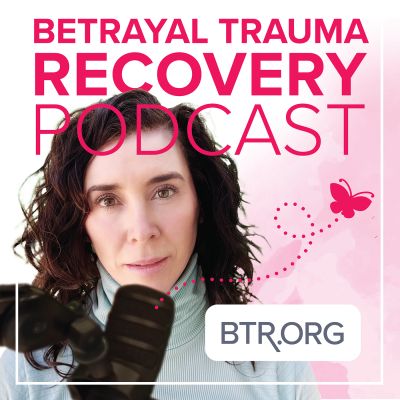btr.org - btr.org has daily, online Group and Individual Sessions for victims of emotional & psychological abuse and sexual coercion. For women experiencing pain, chaos, and isolation due to their husband’s lying, gaslighting, manipulation, porn use, cheating, infidelity, emotional abuse, and narcissistic abuse. Labeling a victim as "codependent" is a form of victim blaming. Pornography addiction / sex addiction are a domestic abuse issue. Narcissistic abuse is not a communication issue. We help women who are married, separated, or divorced heal through establishing emotional safety. If you suspect your husband is a narcissist, a pornography addict, or emotionally abusive, this podcast is for you. Every woman on our team has experienced betrayal trauma first hand. To learn more about Betrayal Trauma Recovery, visit BTR.ORG
https://www.btr.org/podcast/
episode 19: Why 12 Step Harms Betrayal Victims
Many betrayal victims want to know how they can feel better. They want to know how to "fix" the marriage.
Some ask if they should attend 12 step groups for partners of sex addicts to help them in their healing journeys.
At BTR, we believe that women need and deserve safety first. 12-Step programs help individuals overcome personal defects. They do not protect women from abuse. Boundaries protect women from abuse.
Learn why 12 Step harms betrayal victims.
Betrayal Victims Deserve Safety
At BTR our first goal is safety. Boundaries are the only way to create that safety. So we aren't going to tell a woman at this point to take a deep breath and "accept the things she cannot change" because we do not think that women should be okay with abuse while they "clean up their side of the street."
Anne Blythe, founder of Betrayal Trauma Recovery
Anne Blythe, the founder of Betrayal Trauma Recovery, speaks openly about her participation in a popular 12-step group for family members of sex addicts on the free BTR podcast and in the full transcript below. She explains that while the principles taught are helpful in self-improvement, they are not beneficial for a woman who is in currently being abused or has just escaped from an abusive relationship.
Betrayal Victims Deserve Empowerment
When a woman first discovers she has been lied to, that she is being abused, manipulated, and so forth, we at Betrayal Trauma Recovery don't feel like it's the exact right time to say things we often hear at a 12 Step meeting such as, "You need to clean up your side of the street, " or "You need to learn to accept the things you cannot change." I say this because when taken out of context or when these values or principles are applied incorrectly, they lead women to become stuck in the abuse cycle.
Anne Blythe, founder of Betrayal Trauma Recovery
Abusive men blame-shift their abusive behaviors onto their partners. "If you lost weight/were more attractive/gave me more sex/kept the house cleaner, etc, then I wouldn't need to use pornography/have affairs/yell at you/hit you, etc."
The concept of looking at herself and trying to fix herself is familiar to abused women: they do it all the time. To go from an abusive marriage to a 12-step program that encourages her to look at herself and fix herself, is more or less keeping her stuck in the cycle of abuse.
Is 12-Step Ever Recommended For Betrayal Victims?
Once they know how to set boundaries, once they realize they are victims, and once they realize these things are happening, the woman may recognize there are things she has to work on that has nothing to do with her spouse (either current or ex). She may find that in relation to the unhealthy abuse she has been experiencing, she herself has chosen unhealthy behaviors, and this may also be something she wants to look at.
Anne Blythe, founder of Betrayal Trauma Recovery
In short, it may be helpful for a woman to join a 12-step self-improvement program after she has established a long period of safety in her own life. This means that she is living in an abuse-free environment and is processing trauma in a healthy way.
What Help Is Available to Betrayal Victims?
When professionals tell victims to "look at themselves" and see what they did to cause the abusive behavior of another person, this is simply a disguised from of victim-blaming.
Victims cannot control, cause, or cure the abusive behaviors (including pornography use and sexual acting out) of their partners. This is essential for victims to understand. When therapists and other resources counsel in opposition to this...
